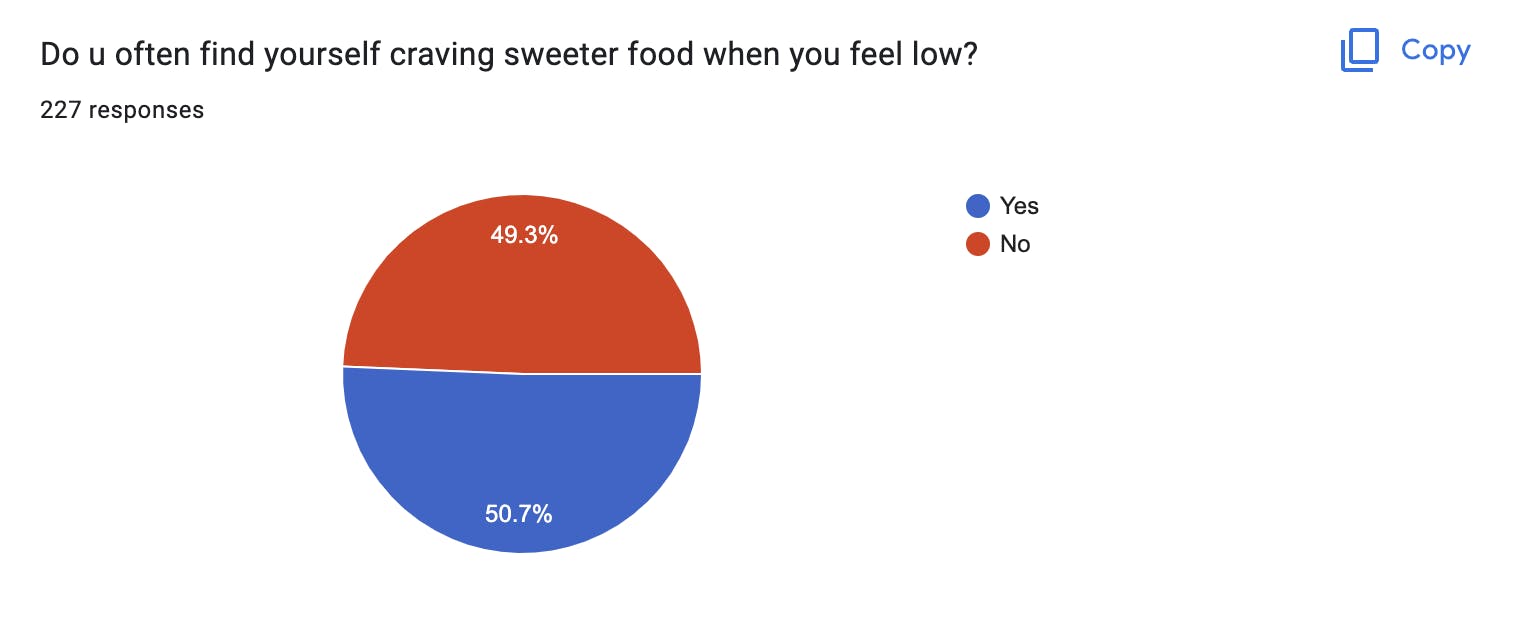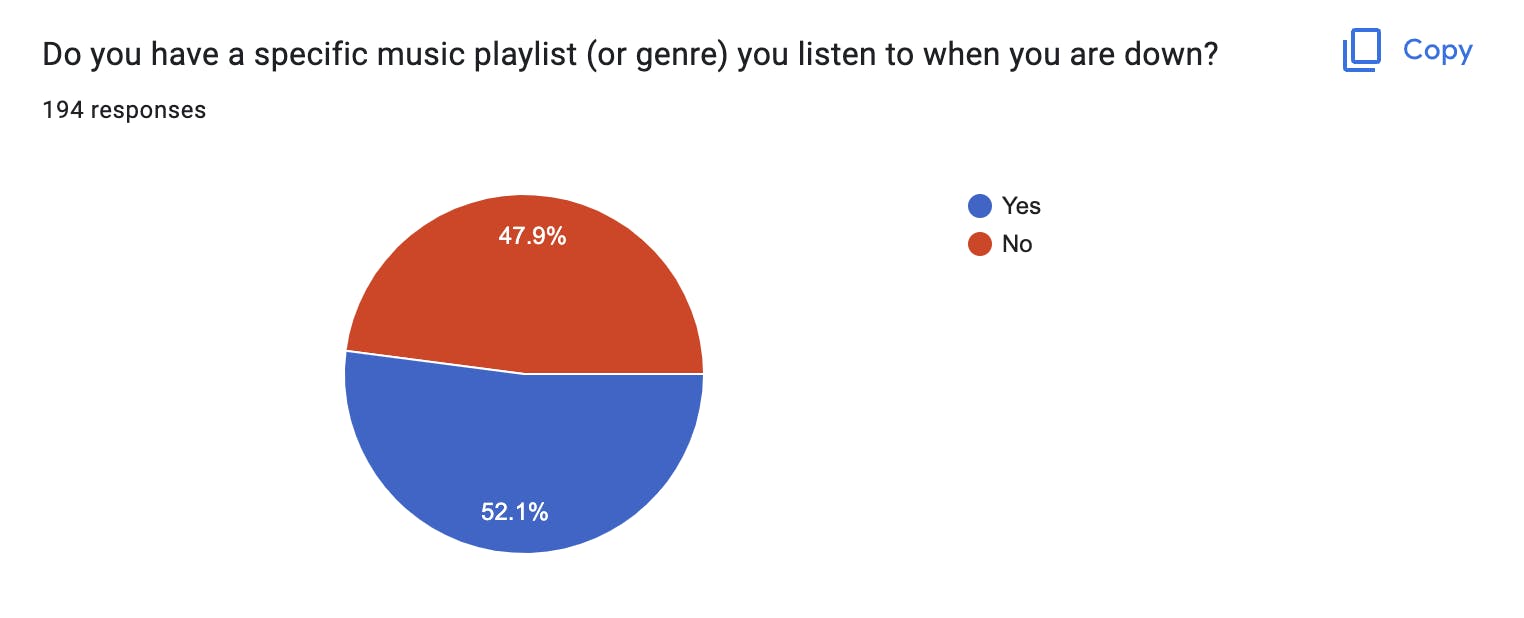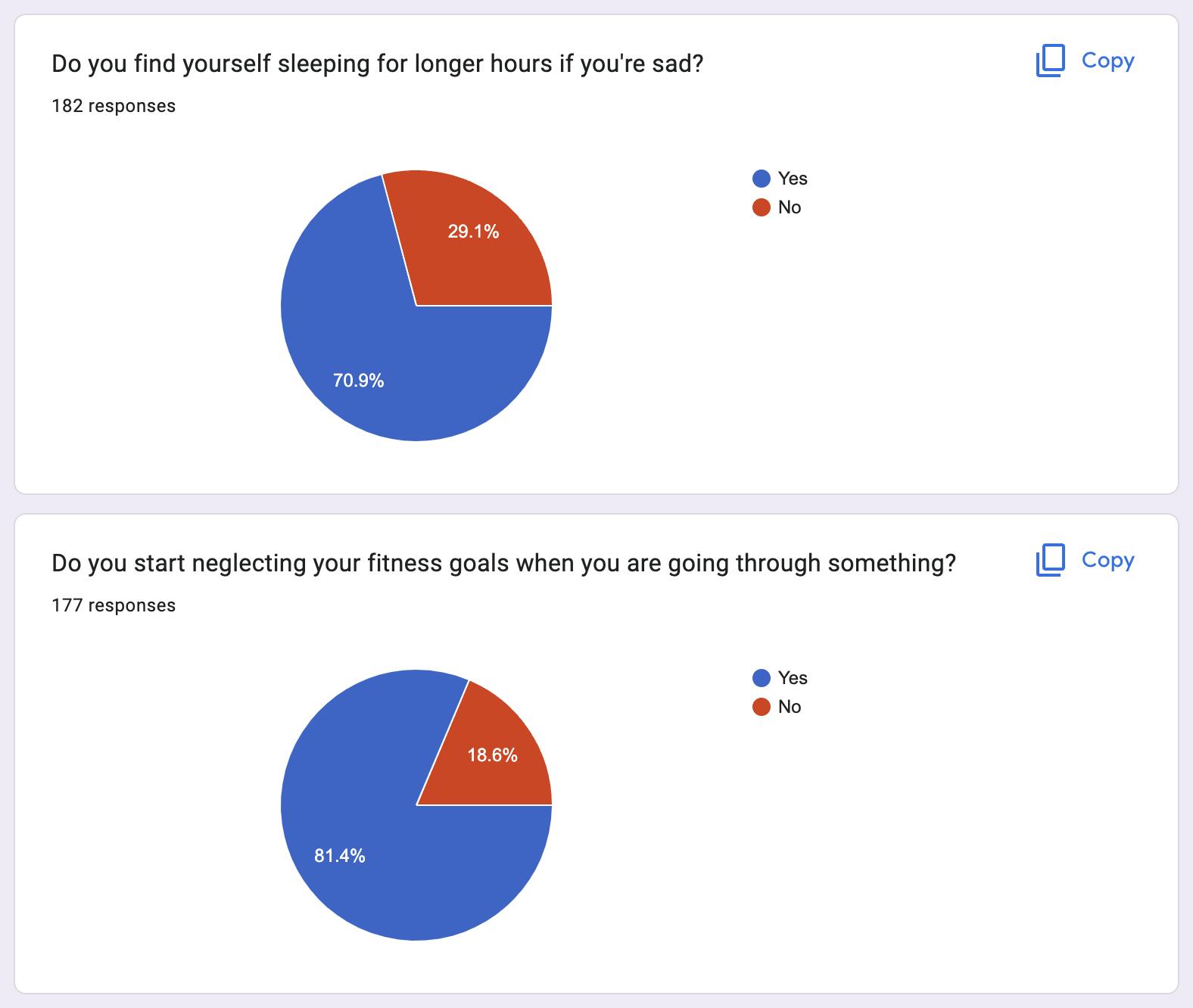Table of contents
The last post in the series was sent out a long time ago. We had plans to continue the work further. Unfortunately, things came up in the lives of all three of us, and we had to abandon this project. This post is to wrap up the series.
The Spotify API
We tried to create graphs of the mood progression from Spotify history data, however, while implementing the code we saw that the API exposes data only for the last 24 hours, and that period is too short to make any judgement about longer-term mood shift.
Unexpected public poll
Not being professional researchers, we made mistakes. We formed a narrative we wanted to tell. We extended how we feel during sadness and expected everyone to follow the same principles. We had a set plan on how we wanted to proceed, make up a correlation, and devise a formula to quantify mood based on the trend. And then finally do a poll to reassure ourselves that our assumptions were correct. Our poll was very different. On some hypotheses, we were spot on, but for others, we just weren’t right.
Over a few hours, 227 students answered our poll, and these are some of the outcomes.

We were expecting food to play a large role in mood detection. We expected people to clamour for sweet, sugary foods when they don’t feel good. But it hardly shows up in this chart. Even less in the next one.

This is a 50-50 split, making our hypothesis null. We were trying to find problems where there were none. These instances led us to question the validity of the premise on which we are setting our whole study. Similarly, our opinion on music is also a half-split:

Although, this can also mean different things because people self-assessed their situation and answered. However, not everything was as bad. Some outcomes precisely followed how we wanted them to.

These show a strong correlation between sadness and increased sleep and neglected fitness.
Ending credits
Since this was a project for a course, we quickly pivoted it to a research study and analysed the poll. However, without the evidence to support our narrative, we thought starting to find a solution all over again might be better suited to people who know the problem domain better. That, plus some of the technical snags we faced all along. We had other commitments in our lives and figured it best to move on, rather than gnaw against a wall that would bear no results. Better judgement the next time.

